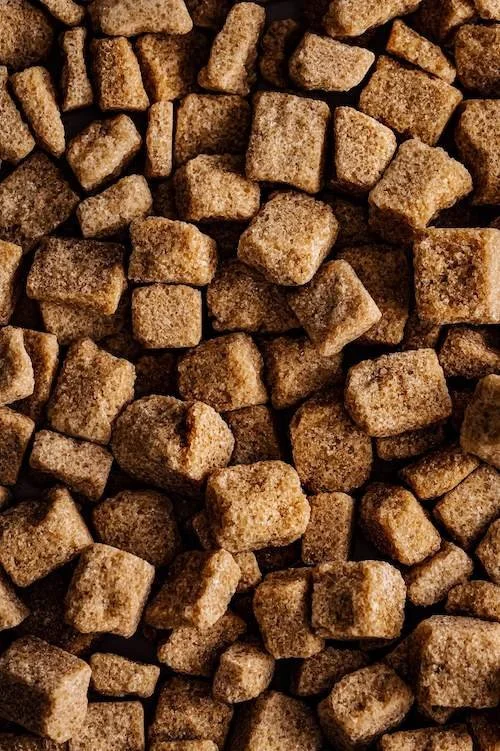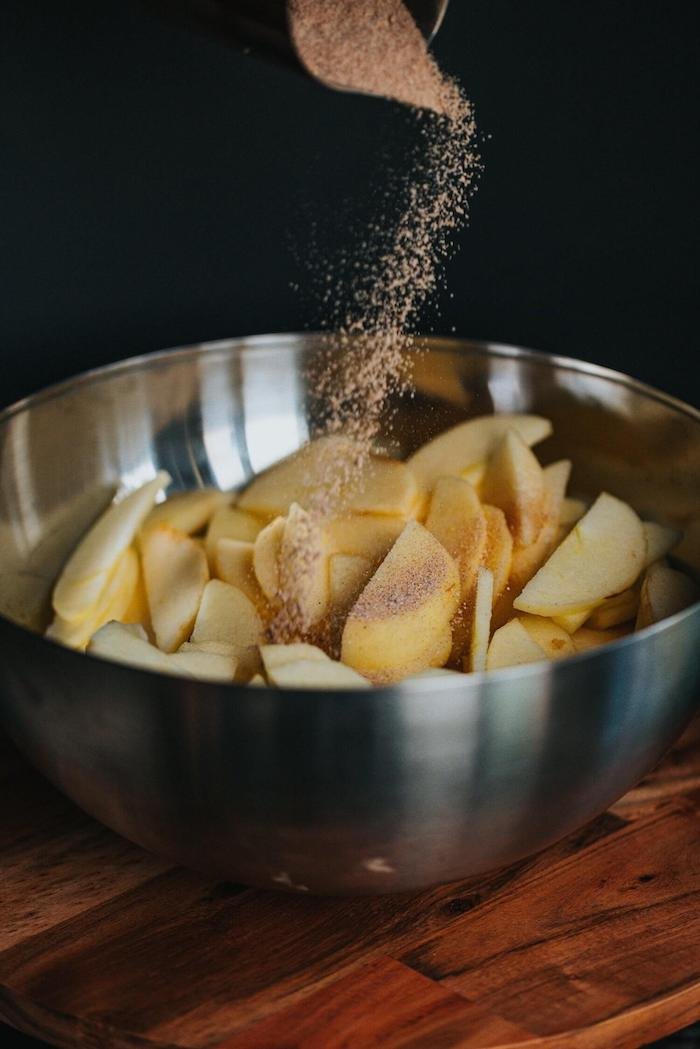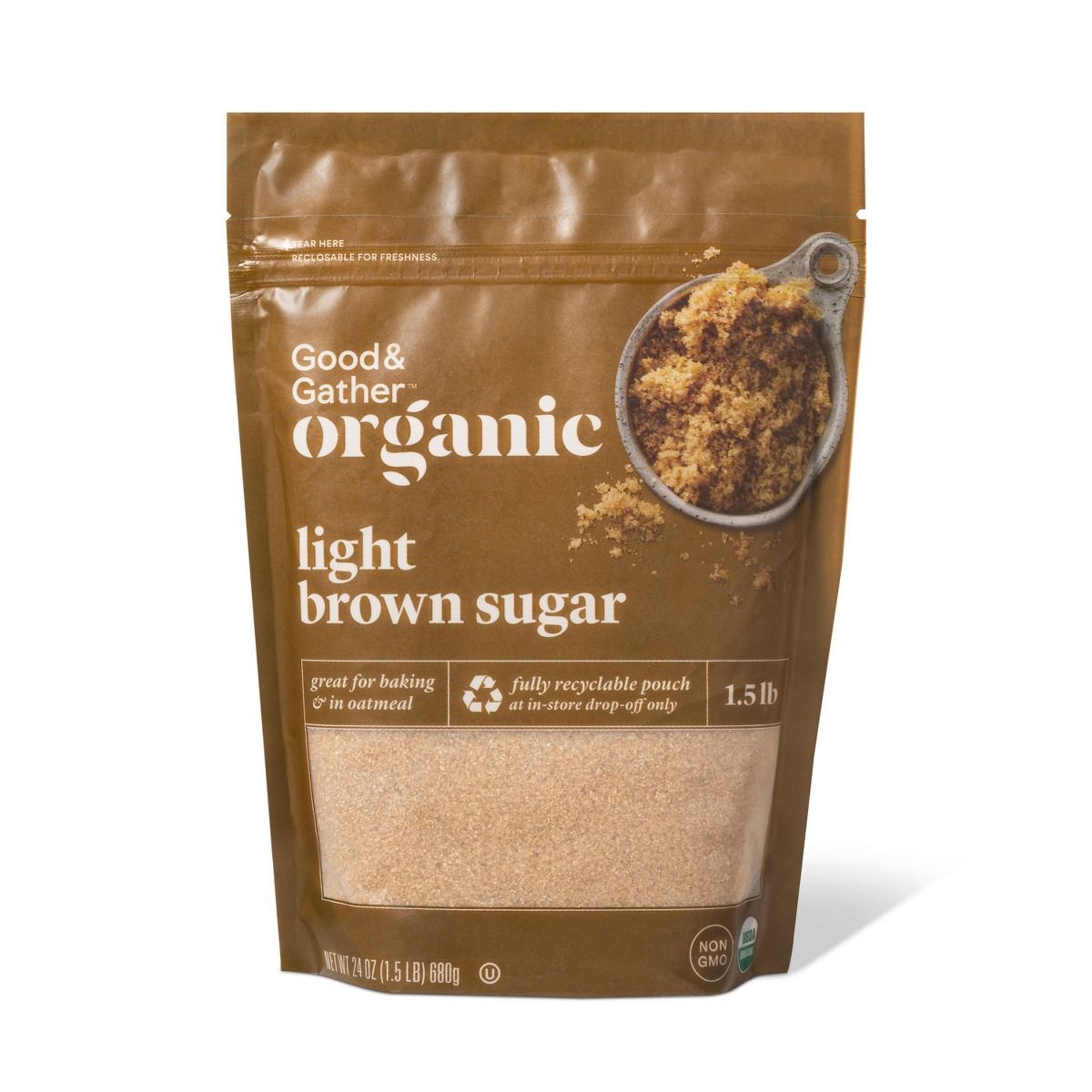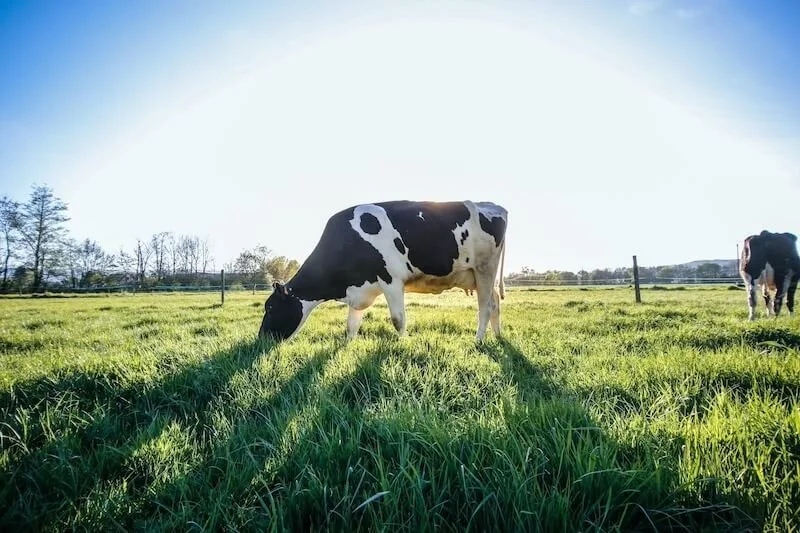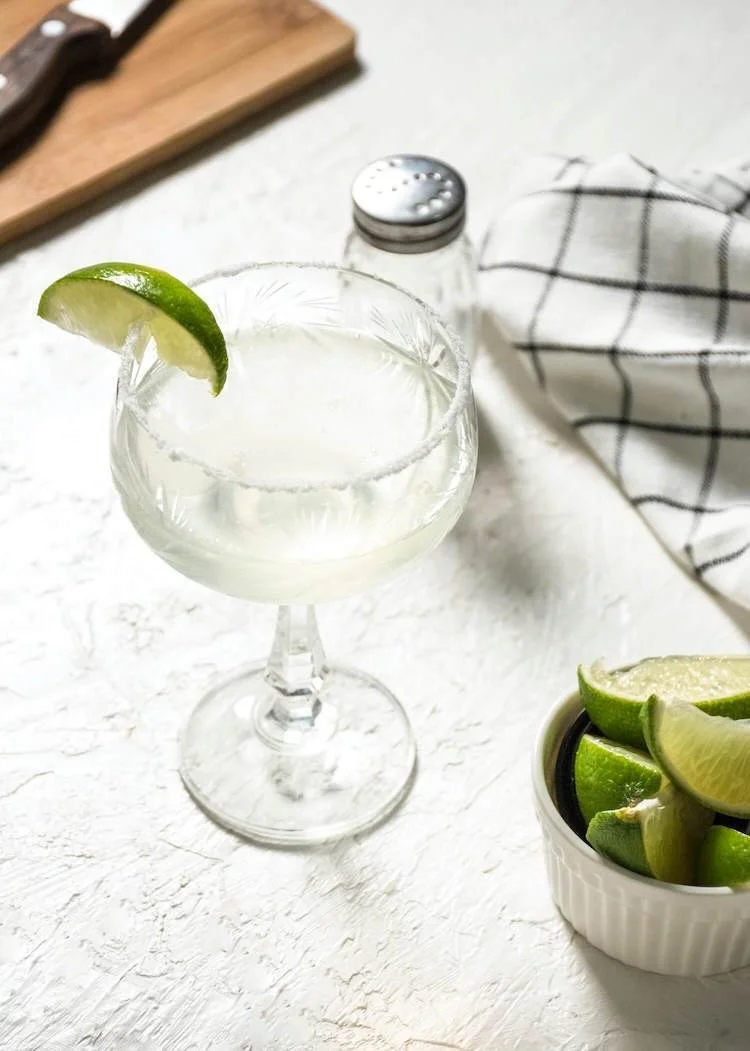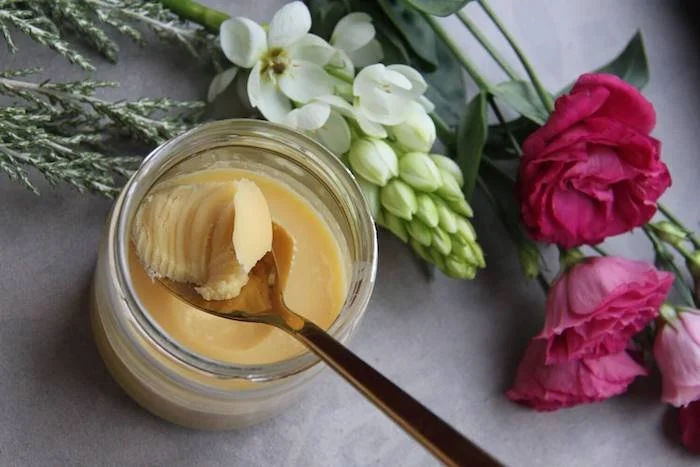What's the Difference in Organic Brown Sugar vs. Regular Brown Sugar?
Excellent for cookies, cakes, pies, and pancakes, brown sugar is a baking essential. It’s also a great addition to marinades and vinaigrettes and can be stirred into your coffee for a richer sweetness.
Most of the time, brown sugar can even act as a replacement for white sugar. Beyond the kitchen, it’s used as an ingredient in body scrubs.
But what is the difference between regular brown sugar and organic brown sugar? Let’s explore!
This post does contain affiliate links which means we might make a commission off of a purchase you make, but this is at no additional cost to you! Affiliate links help us keep The Honest Consumer as a free resource to those learning about conscious consumerism.
What is Brown Sugar?
Brown sugar is a sucrose sugar derived from sugar cane or sugar beet plants and contains natural molasses that give it a unique brown color and flavor. The darker color of brown sugar comes from the molasses content.
There are different types of brown sugar available like dark brown sugar and light brown sugar, according to how it is made: unrefined, raw, and refined.
It’s important to note that despite these terms, all regular brown sugar is refined and processed – what is known as “raw” and “unrefined” is just the least refined.
Here is a breakdown of all three and the refining process and the main differences. Dark brown sugar has a higher molasses content while light brown sugar just has less molasses.
Unrefined: Produced from sugar cane, cane juice is collected and clarified, and the water then boiled off until a dark syrup called cane molasses forms around the sugar crystals. This is cooled and dried. The more molasses retained, the darker the color. Unrefined sugar is usually coarser than the other two types.
Raw: Made similarly to unrefined brown sugars, the difference lies in the centrifugation process. In this step, the sugar crystals are spun and dried in a perforated basket, helping it retain the amount of molasses.
Refined: The most widely available, this is simply white sugar mixed with molasses. It may be made from sugar cane, beet sugar, or a mix of both.
No matter the type of sugar, sugar is big business, with sugar cane grown across the globe.
Brazil is the biggest sugar cane producer in the world, but production also takes place in Mexico, Guatemala, Colombia, Bolivia, Paraguay, Guyana, South Africa, China, India, Thailand, Vietnam, Indonesia, and the Philippines.
There are differences in how brown sugar is made in various regions, and they are also variously named. Brazil produces rapadura.
Other types of brown sugar include muscovado from Mauritius and the Philippines, demerara from Guyana, panela from Colombia, piloncillo from Mexico, and jaggery from India.
In the United States, 70% of sugar consumed comes from sugar beets produced in the Upper Midwest and on the West Coast. Sugar cane is produced in southern Florida, the Mississippi Delta region of Louisiana, and southern Texas.
What is Organic Brown Sugar?
Organic brown sugar is unrefined or raw sugar, produced from organically grown sugar cane. This involves organic farming practices that adhere to the U.S. Department of Agriculture’s organic standards.
These include protecting soil health through methods such as crop rotation and planting cover crops; the prohibition of sewage sludge and genetically modified (GM) seeds; and limiting the use of chemical pesticides and synthetic fertilizers. The sugar cane must also be organically processed and packaged.
Brown sugar made from sugar beets is usually not organic, because sugar beets are typically grown from GM seeds. This is especially the case in the U.S. where you’d be hard put to find locally-grown, organic sugar beets.
Is Brown Sugar Vegan?
Unrefined and raw brown sugars are also vegan. Refined brown sugar may not be, due to the animal-derived bone char that is used to remove impurities. Vegan refined sugar uses ion exchange resin instead. However, this may mean it is no longer organically processed.
Brown sugar made from sugar beets is vegan because it does not require the bone-char process. You can use coconut sugar as a vegan alternative but it will impact the flavor of your dish and, nutritionally, the health impacts are not much different to brown sugar.
Does Organic Brown Sugar Have Health Benefits?
The health impacts for regular white sugar and brown sugar are nutritionally similar. Brown sugar contains about the same amount of calories and the idea that it is healthier than white sugar is a myth.
In the past, marketers tried to punt brown sugar as a better alternative for your health because it contains slightly more minerals, but these amounts are too small to provide any significant health benefits. The calories present can provide our bodies with an energy boost, but beyond that sugar’s purpose is ultimately to add different flavor and texture to food.
Often the calories from any sugar are considered empty calories because they are simple carbohydrates, which are broken down quickly by the body to be used as energy.
Organic brown sugar from organic cane sugar may be a better choice because it is grown and processed with fewer or no toxic chemicals.
However, we should be more concerned about added sugar’s negative health impacts because it can lead to obesity and diabetes and may impact cardiovascular health.
Furthermore, sugar’s impact does not stop at our health, because sugar cane production has many negative environmental impacts.
While table sugar is made of natural sugars, other natural sweeteners that make a good substitute for sugar in baking are maple syrup, honey, and dates.
The final product tastes the same but may have a different health impact. Always talk to your doctor when it comes to changing your diet.
Environmental Impacts of Brown Sugar
Added sugar has become a popular, everyday commodity in our modern diets. It’s not just the sugar you add to your coffee or use in baking that you need to think about, but the different types of sugar present in a variety of foodstuffs that we get from grocery stores.
From its inclusion in the sweet (like candy) and savory (like soups) to its use in condiments (like ketchup) and processed food, added sugar is omnipresent. This high demand leads to increased production, which comes with several negative environmental impacts.
Sugar cane plants are one of the most water-intensive crops in the world. It remains in the soil all year, thus continually requiring water. Due to chemical runoffs from pesticides and fertilizers, as well as sewage sludge from sugar mills, sugar cane production also results in water pollution. This not only affects aquatic life, but impacts the quality of the soil.
Deforestation is another severe impact because sugar cane covers 65 million acres of land worldwide, with a dozen countries using at least 25% of their farmland to grow it. To meet continued demand, 50% more land will need to be cultivated by 2050.
This means forests need to be cleared for plantations in tropical and coastal regions, areas vital to conserving and balancing ecosystems, supporting biodiversity, and providing homes and livelihoods to billions of people.
Organically grown sugar cane can mitigate some of these impacts through sustainable farming methods that protect ecosystems. These include planting wildlife corridors, as well as managing weeds and pests using natural controls. Water pollution is also kept in check because organic standards dictate that sewage sludge is not allowed. While land use can be managed and water pollution minimized, sugar cane remains a thirsty crop. Sugar beets require less water than sugar cane, but are often not organic.
Producing and consuming sugar – white or brown, organic or not – remains a complex issue with paths to sustainability that can feel convoluted. The best thing you can do is choose organic where possible, support eco-friendly, fair trade brands and, above all, limit your intake which will serve not only the planet’s health but your own.
The 3 Best Organic Brown Sugar Brands
If you’re looking to choose a more sustainable version of brown sugar then these organic brown sugar brands are a great place to start!
Thrive Market’s Dark & Light Organic Brown Sugar
Thrive Market’s organic brown sugar is another excellent choice. Their organic light brown sugar is made by cooking ethically sourced, fair-trade sugarcane juice until it evaporates and crystallizes into a perfectly soft and moist, golden-brown powder.
It contains absolutely no added preservatives or chemicals, and can be used as a 1:1 swap for refined light brown sugar in cakes, candies, sauces, and more. They also offer dark brown sugar! These organic sugars can be purchased for around $5 a bag.
Wholesome Fair Trade Organic Brown Sugar
Wholesome’s organic brown sugar is my top pick although one of the more pricey options! Whenever I feel like I can splurge I do because not only is their product high quality, but their values match my ethics.
Wholesome is dedicated to creating positive, meaningful change by bringing farmers, makers and bakers together through the joy of better food. Along with growing their products sustainably, they are also Fair Trade Certified ensuring farmers are treated with respect and paid fairly.
Wholesome offers both light and dark brown sugars. These can be purchased for around $6-$10 per bag.
Good & Gather’s Affordable Organic Brown Sugar
Target’s Good & Gather brand of brown sugar is USDA Organic certified and easy to find at your local Target. Offering both brown and light sugar this brown sugar features a more affordable price point of $3-$4 per bag.
Hopefully this guide has helped you learn the benefits of choosing organic brown sugar and given you some brands to keep an eye out for!
Discover more ethical & sustainable brands by heading back to the main page of our Ethical & Sustainable Brand Directory. Also be sure to follow The Honest Consumer on social media for new brands & discounts!

